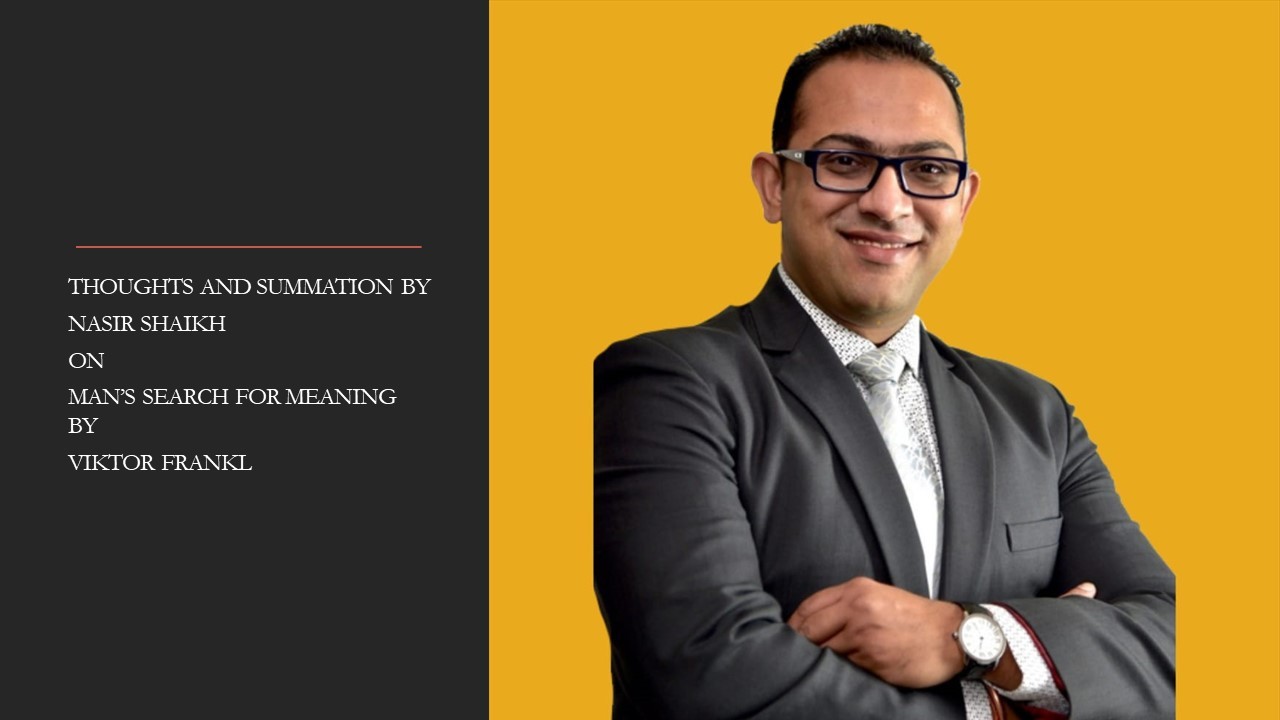
Book Review - Man's Search For Meaning by Viktor Frankl
At the onset, it has to be established that Man’s Search for Meaning is unlike any other autobiographical works you may possibly lay your hands on! As a psychiatrist, the book not only lends insights into the brilliant mind of Viktor Frankl but also as a Holocaust survivor, into his most raw and utterly intense experiences in the Nazi concentration camp at Auschwitz. Borrowing from Friedrich Nietzsche’s famous words - “He who has a Why to live for can bear with almost any How,” the book stands as a tangible testimony to the psychological discovery that Viktor Frankl birthed well before his capture by the Nazis.
With intellectual expertise in psychotherapy and brilliantly juxtaposing it with his penetrating account of the psychology operating in the camp universe, Frankl presents a remarkable line of articulation to support his case on ‘life being potentially meaningful’ despite the circumstances! He calls this line of treatment in psychotherapy as ‘Logotherapy’ - logos meaning ‘meaning’ and therapy implying ‘healing.’ He argues about the idea of enduring the most challenging situations in life through finding meaning beyond oneself. In fact, it was his personal experiences in the extermination camp that validated the scientific basis of his theory and reaffirmed his intellectual prognosis.
Man’s Search for Meaning is a book about the rudiments of survival in any given circumstance. For each, it will differ. And there is ample proof to determine that the rudiments come from the individual’s personal core, not from external realities. Frankl cites his own example as to how his deep contemplation of his beloved wife and the future prospect of seeing her again, helped him survive. In another instance, he explains his future urge to deliver a lecture on psychology about his experiences in a concentration camp. In most cases, he demonstrates how people who gave up on living actually began indulging in the slightest of momentary pleasure they could cherish in that particular instance. For such, they did not believe that there simply would be a next time! And they were the ones who perished first!
Contrastingly, Frankl shows through several instances of human behavior that how despite the grave conditions, there were also those who demonstrated utmost standards of human morality by leading a dignified existence, going beyond themselves in showing solidarity while themselves being equally wretched, and eventually facing death heroically. The author goes on to establish that it is not because of the sheerness of the circumstance that most men perished but due to the inner lack of will to live for something meaningful, that most gave up their hopes on! The author step-by-step leads the reader into the dehumanization process that Nazi camps inflicted on the human psyche, so much so that hundreds of them lost touch with reality, suffered deliriums and had to be recuperated in the most dire conditions! Against this backdrop of men becoming ‘no more than bodies,’ Frankl contextualizes his psychological research.
As a technique, logotherapy presupposes that everyone has a
purpose, it just needs to be discovered. That purpose is what
logotherapy aims at unfolding for each individual who is
convinced of life’s inherent nihilism. It holds that when we
uncover our purpose, we have a whole new outlook on life and
living! We can then approach every single day with vigor and
most importantly, resolve.
Viktor Frankl’s theory also challenges the conventional wisdom
of Freud and Adler in psychoanalysis, the former looking at
life as a quest for pleasure, while the latter viewing it as a
quest for power. Logotherapy, by contrast, tries to see life
as a ‘quest for meaning.’ It shows you an array of
possibilities, you may consider what suits you best based on
your personal aspirations, moral values and talents. Consider
what you do best, what you desire to offer the world, and how
you can make a difference by starting to follow your purpose –
this is how logotherapy deals in treating cases of
maladjustment and neuroses.
The book is quite scientific for a reader with no background in psychology, but Frankl has taken care to simplify certain aspects of the puzzle by drafting short sub-chapters on Will to Meaning, Existential Frustration, Life’s Transitoriness and many others; providing the lay reader a liaison into all the elements of human dimension, trying to bridge that intellectual chasm. No doubt that the book is about helplessness, vulnerability, and survival, but more than that, it is about the infinite power of the human spirit to rise up beyond any externality and transcend the immediate challenges of life.
It was precisely to drive away the point that man became a
non-entity in a concentration camp that famed writer,
Holocaust survivor and Nobel Peace Prize awardee Eli Wiesel
used the words: “...the experience of the camps defies
comprehension”. But to borrow Frankl’s own words here “...man
is more than psyche” - that same non-entity was also the one
who presented the utmost exemplary behavior that can be
attributed to the human spirit in the same external
conditions. Frankl attributed three sources of drawing upon
this meaning to life: Work, Love and Suffering.
He goes on to enumerate that because Auschwitz was all about
suffering, he does not mean to espouse suffering as the sole
way to finding meaning in one’s life. The book in no way
glorifies suffering but rather dignifies it and impels one to
seek meaning in it. Likewise, it nudges one to equally find
meaning in his work or through love; in any case anything
‘beyond oneself’ that one could not only die for but also live
for!
Frankl firmly establishes the scientific substratum for laying down his theory of logotherapy with extensive anecdotes of fellow prisoners to prison guards and SS men like the ‘Murderer of Steinhoff’, to ordinary men and women in the latter part of the book such as that of Jerry Long. But of course, the first part of the book plays a major role in demystifying the remaining half. Whether or not you are a bibliophile, this book is a must read! It teaches you that perhaps “hope-beyond-hope”, is the whole idea of Hope!
The above is my perspective on Viktor Frankl's - Man's Search For Meaning
Author -- Abdul Nasir Shaikh

